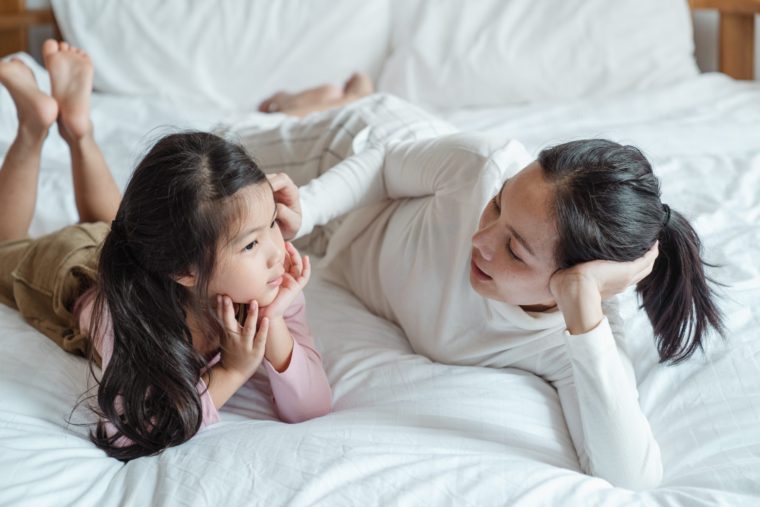A good listener attends to what is being said, as well as what is partially said or left unsaid.

Listening involves, not only your ears but also your eyes. An effective listener will observe body language… looking for conflict between verbal and non-verbal messages.
Here are 10 principles for effective listening:
- Stop talking
- Don’t talk. Listen.
- Someone once said that we have two ears and one mouth because we are supposed to listen twice as much as we talk.
- When your child is talking to you, be fully immersed in the conversation.
- Prepare yourself to listen.
- Body language is integral to listening.
- Turn your body toward your child.
- Refrain from performing other tasks e.g., doing dishes while your child is speaking to you.
- Put your child at ease
- Nod or use other gestures to encourage her to talk.
- Maintain eye contact. It sends the message, “I hear you. I’m listening.”
- Show that you understand what is being said.
- Remove distractions
- Avoid unnecessary interruptions
- Focus your thoughts on your child’s words.
- Empathize and be patient
- Try to understand from your child’s point of view.
- Let her continue in her own time. Pauses are okay.
- Listen for ideas, not just words
- Piece together her bits and pieces of information and get the whole picture.
- State aloud what you believe you heard.
- Let your child clarify if you misheard.
- Wait and Watch for Non-Verbal Communication
- Watch for gestures, facial expressions, and eye-movements
If you are the parent of a dyslexic child, it behooves you to resolve to be an effective listener so that you can help her develop self-awareness, confidence, and self-esteem and guide her to learning success.

Hi Florence, There are a lot of things there that I can do to become a better listener.
Thanks for the reminder tips.
You’re welcome, Doug. I’m working on being a better listener myself.
A great list Florence. I use your tips for so many things even though I don’t have dyslexic child. They are great learning tools that I use with Lia. She’s at the age where she will ramble on in story fashion and I don’t want to interrupt her so I nod or smile so she realizes I’m listening to her.
Way to go, Martha! When learning is made deliberate and fun, all children benefit.